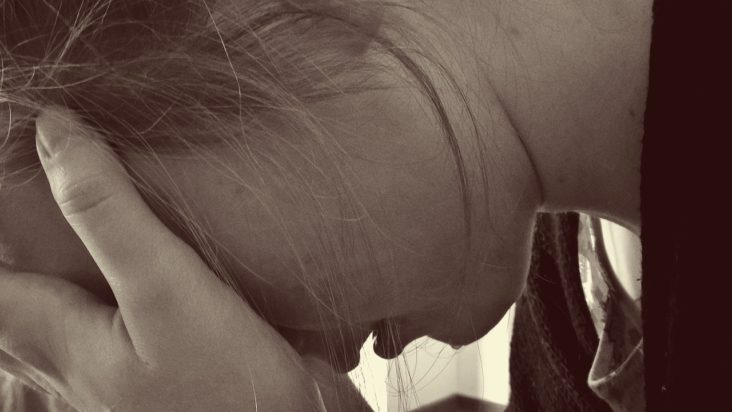This week marks the first anniversary of the school shootings at the Marjory Stoneman Douglas High School in Parkland, FL. On February 14, 2018, 17 students and teachers were senselessly killed and 14 more were wounded.
Reflecting on the tragedy and remembering those who lost their lives will no doubt bring up strong emotions in some children. Even those who weren’t personally connected to the event may feel sad and re-experience a sense of loss. For some kids, the anniversary may even trigger or worsen symptoms of post-traumatic stress disorder (PTSD).
Distressing events such as school shootings can affect children just like they can affect adults. In fact, it’s normal for kids to go through a range of emotions when they hear about a tragedy – they might have trouble sleeping or may express fear, sadness, anger, and grief.
PTSD After Trauma
While many people have moved past the distress brought on by the Parkland shootings, some students may have developed post traumatic stress disorder (PTSD) afterward. This is because children who saw the news coverage or heard about the event may have felt scared, threatened, and unsafe in their own school. Now, the anniversary may bring these troubling thoughts to the surface again.
PTSD is often the result after exposure to a terrifying event or ordeal, especially one in which intense physical harm has occurred or was threatened. It isn’t uncommon for people who were not personally present during a tragedy to find themselves going through some of the symptoms of PTSD, as well.
Just think of your reaction to the events on September 11, 2001. We all watched countless news images of the planes impacting the Twin Towers and of their eventual collapse. Many Americans had strong emotional responses during the tragedy – it seemed as if that’s all we talked about for weeks afterward.
In simple terms, we felt threatened. In this way, you can see how varying degrees of PTSD were the result for many people. Kids can feel the same symptoms after something that hits close to home for them, such as a school tragedy.
PTSD Symptoms
The symptoms of PTSD fall into three categories:
- Hyperarousal symptoms
- Avoidance symptoms
- Re-experience symptoms
With hyperarousal, the person may have problems sleeping or anger easily. They may also be easily startled or seem to be constantly tense and on alert.
Those kids who experience avoidance symptoms might have strong feelings of guilt or worry. Some may be depressed or emotionally numb or may lose interest in the things they used to enjoy. Others might avoid anything that reminds them of the ordeal.
Kids whose PTSD falls into the group that re-experiences the trauma may be burdened with nightmares or frightening, overwhelming thoughts.
Younger children may reenact the event or draw it out on paper. They may also regress or show fearful behavior.
How Is PTSD Treated Professionally?
With time and a period of adjustment, most people will recover from a traumatic event. If a child has gone through a trauma, however, and still has PTSD symptoms for more than a month, seek help from an expert.
A therapist can work with your child to address their symptoms and depression. They will move at the child’s own pace while helping your teen or child adjust.
The therapist may use cognitive behavioral therapy (CBT), which is very effective for dealing with the negative feelings and thoughts that come with PTSD. CBT helps the child replace the destructive emotions with positive ones.
Eye movement desensitization and reprocessing (EMDR) is another therapy that has a proven track record in the treatment of post traumatic stress disorder. It uses focused eye movements to treat PTSD and works in combination with cognitive behavioral therapy.
For young children, engaging in play therapy can be a great way to help them deal with a trauma.
Medication is sometimes prescribed to help a child cope after a tragic event. This is usually reserved for serious symptoms of depression and anxiety.
Helping Your Child At Home
A child who has been through a trauma needs an adjustment period to help them process the event. During this time, they will need plenty of love, support, patience and understanding from you.
- Let them talk about what happened, but don’t force them to do so – they need to be ready to talk. If they won’t talk, encourage them to draw or write about their feelings.
- Let the child know their emotions and thoughts are normal. Get immediate professional help if they are thinking about self-harming or are talking about suicide.
- Keep their routine as close to normal as possible. Try not to let them take too much time off from school or away from activities like sports or music classes, etc.
- Support groups can be very helpful for expressing emotions after a trauma. Ask the school counselor or your child’s pediatrician for nearby groups.
- Don’t condemn behaviors like sleeping with a stuffed animal or keeping the lights on when they go to bed. Sometimes these things can give the child an added measure of comfort during a distressing period in their lives.
After School Violence – We Can Help
Our Children’s Center staff has specially trained clinicians to help those who need help dealing with the anniversary of the school shooting or other traumatic situations. For more information, contact The Children’s Center for Psychiatry Psychology and Related Services in Delray Beach, Florida or call us today at (561) 223-6568.

